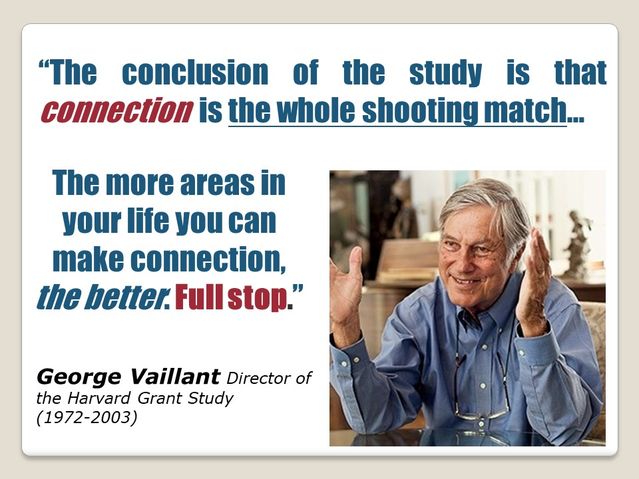Post-Traumatic Stress Disorder
Why the Vegas Shooting Happened
What we can do, starting today.
Posted October 4, 2017
Bad things happen.
And this was one of the worst.
If you somehow haven't heard yet, a gunman opened fire on a crowd in Las Vegas, killed at least 59 people, and injured hundreds more before killing himself. As a magician, I've got a lot of friends in Las Vegas, and I spend a lot of time on the strip (I'll be there next week, in fact.) So add that to the list of why the news horrified me. First and foremost though, was the fact that something like this could even happen. I mean...what are we doing?
More importantly, what can we do to stop it from happening?
Well, I don't have all the answers. I'm just as blown away by this as I hope you are. (Complacency is a bad sign...watch out for it.)
Do we blame the usual suspects? TV? Violent video games? Religious or political extremism? Lack of gun control? Pharmaceutical companies pushing their mood-altering pills? The news media? The Insane Clown Posse???
I recently read some compelling research on wartime PTSD (post-traumatic stress disorder). The researchers found that it isn't the constant risk or threat of dying that does all the damage to the brain. It's the killing that does it.
Even drone pilots, who are far away from the battlefield and in almost zero danger themselves, suffer from PTSD at the same rates as soldiers who are in the thick of battle. But yet, medics and sailors working right alongside those soldiers in the high-risk areas suffered low rates of psychiatric breakdown. It seems that trying to kill people messes you up more than having people trying to kill you.
Killin' Ain't Easy
After the Battle of Gettysburg, something interesting was discovered. Out of the 27,000 single-load muskets recovered, nearly 24,000 of them were loaded, but unfired. Out of those, half were loaded multiple times, but still...unfired.
That's a lot of soldiers thinking about killing, but never doing so - even with the other guys trying to kill them. "Nah, I'll just re-load again while they shoot at me." (Most deaths at Gettysburg were caused by artillery, not infantry.)
There was a similar pattern in WWII. Only 15-20 percent of riflemen ever fired their guns. Thankfully, looking at another human being through the crosshairs and pulling the trigger ain't easy.
Unfortunately, We've Gotten Better At It.
Militaries train their soldiers better now and technology makes it possible to kill at greater and greater distances. Wartime propaganda also helps to make killing easier. They all aim to do one thing...
Dehumanize the enemy.
The Rwandan genocide killed people at five times the rate of the Nazi Holocaust. One out of every seven Rwandans died. Worse, they were not killed with bombs or tanks, but sticks and machetes. Close-range. Personal.
In order to make that happen, some serious dehumanization needed to take place. It was beyond "Us" vs. "Them" for the Hutus. It was "They are not even human, and every Tutsi must die."
The Hutus didn't call them Tutsis though. They called them only "cockroaches." Cockroaches that must be "stamped out."
That's the essential ingredient to killing. Looking at your victims as less than human. That kind of dehumanization is undoubtedly what allowed Stephen Paddock to massacre dozens of people, and then immediately massacre dozens more.
The Single Greatest Threat to Us...And a Solution
I believe dehumanization is the single greatest threat to our way of life. It can show up in a big way on the Las Vegas strip, or it can show up in small ways every single day. Some tiny examples of dehumanization:
- Someone says, "I hate lawyers". You nod.
- Someone tells a racist joke. You laugh.
- An NFL player kneels during the anthem. You want them off your planet.
- The lunch table at work erupts in complaints about the boss. You get fired up. "Damn the man!"
It's a slow killer, but a killer nonetheless.
The solution is to "rehumanize." Strive to understand their core values - family, freedom, desire for survival, etc. Note the similarities to your own. Imagine what a day is like for "one of them" - start to finish. Consider each person you meet as an individual and not as a member of a group. Engage one or more of "them" in conversation. Ask lots of questions and try not to turn it into a debate.
No, we can't remove every violent video game from the world or censor every hip hop artist we don't like or take away everyone's mobile device or eliminate all the guns, etc. etc.
But we can focus on finding more human connection in our own lives. We can search for opportunities to create small moments of connection at work, or in our families, or in our communities. We can try to find another human buried somewhere in our mind's "THEM" pile.
If there's one thing we've lost, it's the small spaces (and the permission) to create connection. Everyone is busy. Everyone is staring at their phone. Everyone is so laser-focused on the bottom line. There is so much content to consume that every waking moment is filled to the brim with hyper-stimulation and nothing is left over for those small moments of connection.
Again, I don't have all the answers. Maybe I'm just an idealist. All I know is that every time I find a way to insert more human connection into my life, the better. Harvard agrees. After an 80-year, $20 million study, they found this:





